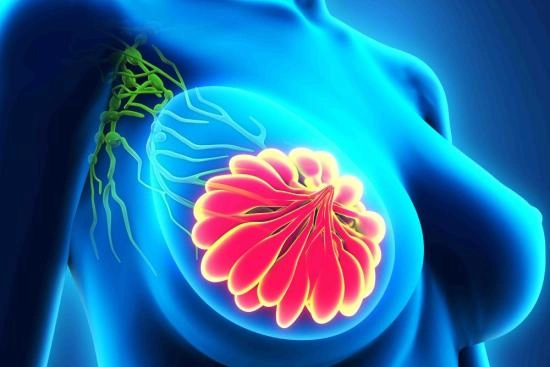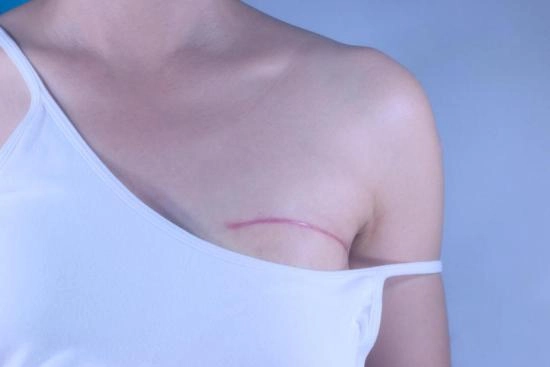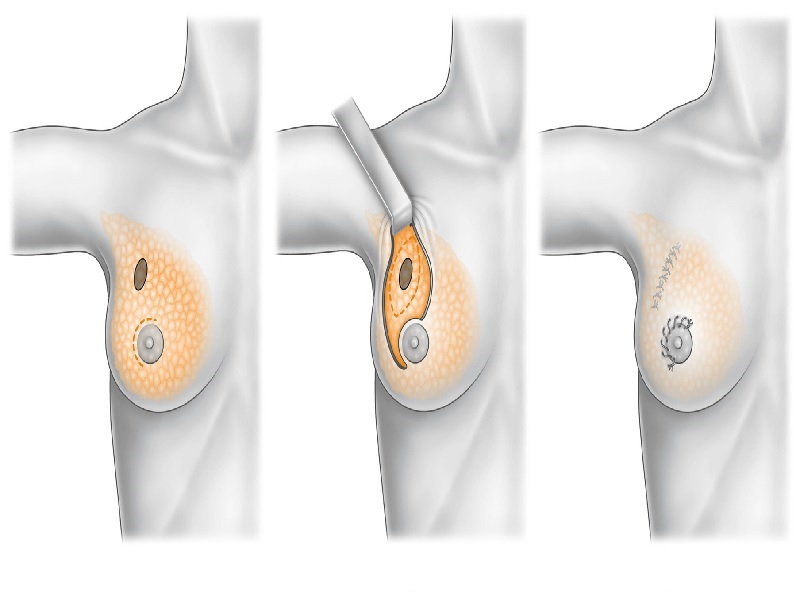Breast cancer is defined by the uncontrolled growth of abnormal breast cells known as cancer cells. These cells, which develop from an abnormal transformation, grow independently and can metastasize to other parts of the body through blood or lymph vessels.
The advancement of breast cancer typically occurs gradually, taking several months or years for most patients. This slow progression enables early detection, which improves the likelihood of a cure.
People who suffer from breast cancer
It all depends on the type of treatment
Breast Cancer Treatment: Costs in Turkey
The cost of breast cancer treatment depends on the stage and type of the disease. With our partner clinics in Turkey, you will receive the best care to cure your disease, regardless of its stage.
You can get a free consultation with our oncology doctors and a personalized quote by clicking on the link below.
Best Clinics with Verified Reviews

- Multispecialized hospital
- 7 operating rooms
- Capacity é of 170 beds
Risk factors & causes of breast cancer
Several factors play a part in the risk of developing breast cancer. A family history of breast cancer, particularly in a mother, sister or daughter, significantly increases the risk.
Inherited mutations in the BRCA1 and BRCA2 genes also significantly increase risk.
The risk of developing breast cancer increases with age, with the majority of cases occurring after the age of 50.
The main causes and risk factors for breast cancer are :
- Overweight and obesity after the menopause.
- Sedentary lifestyle.
- Hormone therapy.
- Alcohol consumption.
- Taking birth control pills.
- Exposure to chemicals.
The presence of one or more of these risk factors does not mean that a woman will necessarily develop breast cancer. Conversely, a woman without any risk factors is not immune to the disease.
Types of breast cancer
There are different types of breast cancer, each of which requires a specific approach to treatment and care to maximize the chances of a cure. These types are determined mainly by the location of the tumor and the type of mutation that causes it.
- Ductal carcinoma in situ: This tumor affects the ducts that carry milk from the breast glands to the nipple.
- Invasive ductal carcinoma: This type affects the same ducts as the previous one, but unlike it, it spreads into the breast tissue. This is the most common type.
- Lobular carcinoma in situ: This type is not a tumor, but cells that develop abnormally in the breast glands. This degeneration can lead to the development of cancer.
- Invasive lobular carcinoma: This is the least common type of cancer. It starts in the breast glands and spreads to other tissues in the organ.
- Inflammatory breast cancer: Also rare. It is characterized by redness and swelling of the breast. It develops very quickly and is aggressive.

Symptoms and people at risk
Breast cancer is most often associated with women, but it's important to note that 1% of cases affect men, especially those over the age of 60. Some women are more susceptible to breast cancer due to factors such as age, family history, personal history, and the presence of high-risk lesions in the breast.
Women who are more likely to develop cancer need to be aware of the slightest symptoms, some of which may be visible without a physical exam.
These symptoms include:
- A lump in the breast.
- Spontaneous discharge from the nipple.
- Nipple retraction (the nipple turns inward).
- A change in the skin of the breast (thickening, hardening, redness, warmth, change in the skin around the nipple).
- A change in the shape of the breast.
Male breast cancer
Men can also get breast cancer. The disease is rare, accounting for 1% of all cancers and 0.5% of tumors in men. As a result, patients and doctors rarely think about this possibility when a man comes in for pain or size in a breast.
As a result, the diagnosis of breast cancer is often delayed, leading to the discovery of an advanced tumor that is more difficult to cure.
Screening and early detection of breast tumors
The majority of cancerous tumors are detected by women themselves. That's why it's important for a woman to recognize any changes in her breasts during her menstrual cycle.
It's a simple test that involves raising your arm and massaging your breast to check for the presence of a cyst or lump.
You can also use a nuclear scan to detect tumors early.

Treatment of breast tumors in Turkey
In Turkey, breast cancer treatment is tailored to each patient and her specific tumor.
Far from being limited to traditional surgery, which has long been the only option, breast cancer treatments have diversified thanks to advances in oncology.
Your treatment journey begins with a breast biopsy. This removal of tumor tissue allows us to make an accurate diagnosis and determine the most effective strategy for you.
In addition to surgery, there are four main approaches that may be considered:
- Radiation therapy: Using X-rays to destroy cancer cells.
- Chemotherapy: Drugs given intravenously or orally to eliminate cancer cells throughout the body.
- Hormonal therapy: blocking the production or action of hormones that stimulate tumor growth.
- Targeted therapy: using innovative drugs to specifically target cancer cells while limiting side effects on healthy cells.
Oncology in Turkey offers a range of advanced solutions to combat breast cancer, based on an individualized approach and state-of-the-art technologies.
Please do not hesitate to contact us for more information about the treatments available in Turkey and their suitability for your situation.
Why choose Turkey for your treatment?
With Turquie Santé, you'll have access to highly care and personalized attention. In fact, Turkish hospitals guarantee breast cancer patients modern infrastructure and state-of-the-art technical facilities for top-quality treatment.
Personalized support is also provided throughout the treatment process for optimal physical and psychological care.
Thanks to an individualized approach and the comprehensive therapeutic arsenal available in Turkey, women with breast cancer can now look to the future with confidence. With Turquie Santé, you finally have the opportunity to rely on cutting-edge medical solutions and personalized support to maximize your chances of recovery and improve your quality of life.
Share this page
- Obesity: fatty tissue raises the risks of appearance of cancer cells in the breasts;
- Taking hormonal contraceptives over a long period;
- Hormonal treatment of menopause;
- Late pregnancy or lack of pregnancy;
- Alcoholism
- The consumption of meats rich in fat;
- Type 2 diabetes.
Examine your breasts using rotating movements with your fingers, starting at the outer part of the breast and working your way up to the nipple. You should also examine your armpits and your upper and lower part of the breast.
Breast cancer is treated in our clinics in Turkey with different methods, including:
- Mastectomy: surgery to remove the breast;
- Radiotherapy: or irradiation, a locoregional treatment of cancers.
- Chemotherapy: the use of certain chemicals to destroy cancer cells and prevent them from multiplying such as alkylating agents, antimetabolites, mitotic spindle agents.
- Hormonal therapy: an anti-cancer treatment that acts on certain hormones that promote the appearance of breast cancer (estrogen).
- Targeted therapies: these are medicines that can destroy only cancer cells.
Surgery that retains most of the mammary tissue is called lumpectomy or breast-conserving surgery. It is often followed by radiotherapy.
Yes ! There is a mammary tissue in the male breast similar to the female's one. As a result, cancer cells can very well grow there. Indeed, breast cancer accounts for 0.5% of male cancers.






